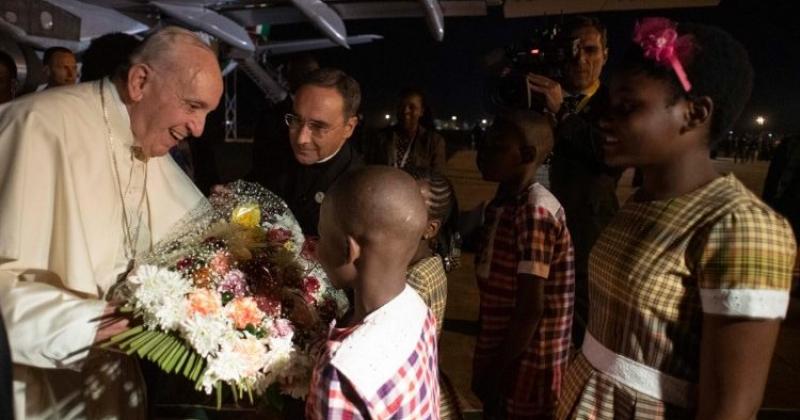Pope Francis launches a strong appeal for reconciliation in his first speech in Mozambique, recalling that peace is not only the absence of war but an untiring commitment to restoring people’s rights and dignity, all of which requires a hefty dose of forgiveness.
“No to violence, and yes to peace!” Pope Francis repeated those words of Saint John Paul II during his first speech in Mozambique, speaking to the country’s authorities, representatives of civil society, and the diplomatic corps.
The word "peace" risks sounding like an empty slogan, especially to the ears of those who have not known war, violence, fratricidal hatred, and internal conflicts in countries under the influence of the great powers. But here in Maputo, the appeal of the Bishop of Rome touches upon the most intimate chords of a people.
Decades of conflict
One million dead and 3 to 4 million people displaced to neighboring countries: that was the cost of the civil war in which Frelimo (Mozambique Liberation Front - of Marxist-Leninist inspiration) and Renamo (Mozambican National Resistance - an armed anti-communist movement) were opposed to each other. The war lasted more than 15 years, and ended in 1992 with the Rome Accords sponsored by the Saint Egidio Community, the local Church, and the Italian Government. Over the course of the last quarter-century, the road has not been easy but rather marked by the re-emergence of conflicts that have made many fear the worst.
Today peace seems to be flourishing thanks to the new agreement signed in August 2019 between President Nyusi and the leader of Renamo, Ossufo Momade, which provides for the disarmament of more than five thousand fighters and new general elections scheduled for October 15.
Peace requires work
With his first public words in the country, Pope Francis sought to express his appreciation for the efforts being made so that "peace will once again be the norm, and reconciliation the best path to confront the difficulties and challenges that you face as a nation.” The quest for and commitment to peace requires "strenuous, constant, and unremitting effort".
But Pope Francis, in the opening speech of his visit to Mozambique, recalled that peace "is not merely absence of war but a tireless commitment – especially on the part of those of us charged with greater responsibility – to recognize, protect and concretely restore the dignity, so often overlooked or ignored, of our brothers and sisters, so that they can see themselves as the principal protagonists of the destiny of their nation.”
Hand-in-hand with justice
Peace cannot be separated from justice and cannot be achieved without forgiveness and reconciliation, as John Paul II always said, even immediately after the attacks on the United States on 11 September 2001.
"We cannot neglect the fact,” said his successor, “that without equal opportunities, the different forms of aggression and conflict will find a fertile terrain for growth and eventually explode. When a society – whether local, national or global – is willing to leave part of itself on the fringes, no political programs or resources spent on law enforcement or surveillance systems can indefinitely guarantee tranquility.”
Social inequalities, the wild exploitation of natural resources which leaves people in poverty, an economic-financial system which puts the ‘god of money’ ahead of humanity, and provocations toward hatred and opposition are all seeds of violence and war. In order to make true peace flourish, the Pope said, we must commit ourselves to promote justice, to combat inequalities, to foster the culture of encounter, to take care of our common home, and not to discard the young and the elderly.
A master path worth following, not only in Africa.
